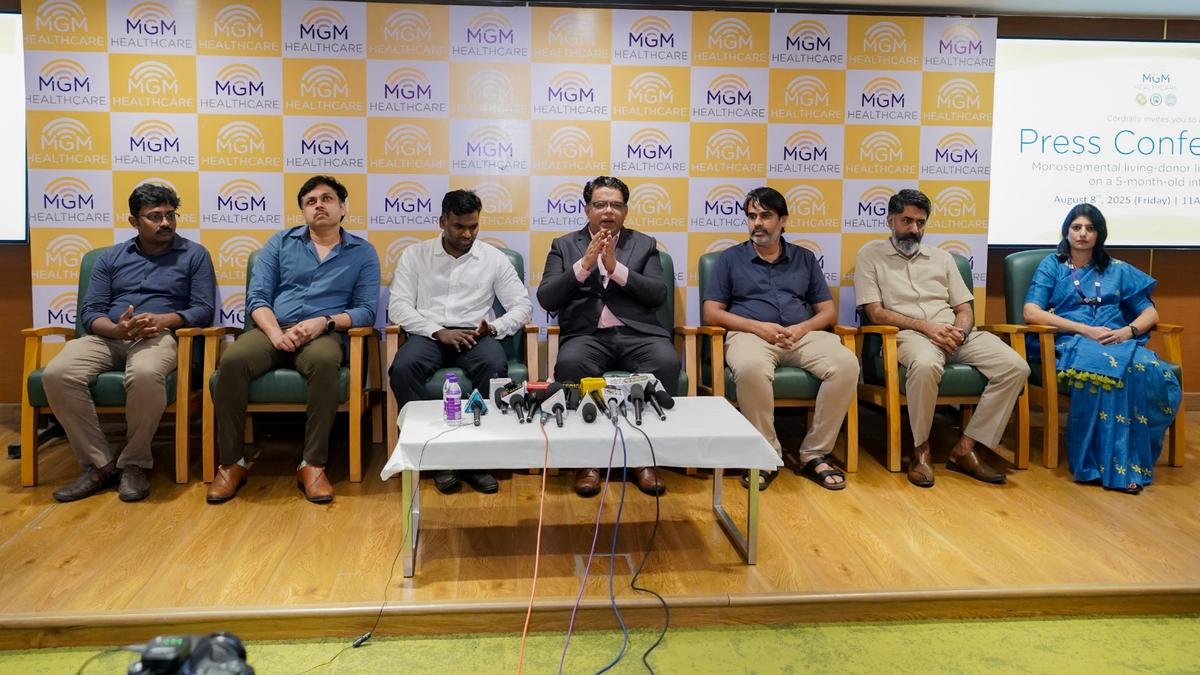
Monosegmental living donor liver transplantation (LDLT) is a viable option with satisfactory graft survival for small babies with liver failure
| Photo Credit: Special Arrangement
MGM Healthcare has successfully performed a reduced living donor liver transplant on a five-month-old infant from Krishnagiri, diagnosed with the rare Crigler–Najjar syndrome type 1, a hereditary liver disorder affecting one in a million children. The baby, weighing only 8 kg, was discharged 14 days after the 10-hour procedure.
The condition, caused by the liver’s inability to process bilirubin, can lead to severe jaundice, neurological damage, liver cirrhosis and failure. Standard phototherapy often fails to control bilirubin levels, making transplantation the only curative option.
In this case of monosegmental living donation, surgeons reduced the mother’s liver graft to 150–180 grams — small enough to fit the infant’s abdomen, while preserving critical blood vessels and bile ducts. According to the hospital, meticulous 3D planning enabled precise reduction of the graft under cold perfusion, ensuring a match for the child’s size and anatomy.
The surgery was led by Thiagarajan Srinivasan, senior consultant and director, along with Srikanth Thummala and L. Soundara Rajan from the Institute of Liver Diseases, Transplant and HPB Surgery. The anaesthesia and intensive care teams were headed by doctors Dinesh Babu and Nivash Chandrasekaran.
“To carry out a living donor liver transplant in such a small infant was a challenge,” Dr. Srinivasan said. “Careful reconstruction of the arterial supply, precision in trimming the graft, and minimal blood loss were key to success. This is a proud moment for our team, and a privilege to give a young life a second chance.”
The hospital said the child would require lifelong follow-up and immunosuppressive therapy to prevent organ rejection.
Published – August 09, 2025 12:44 am IST





















